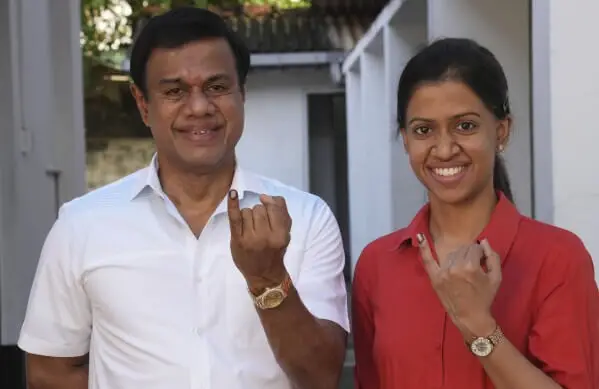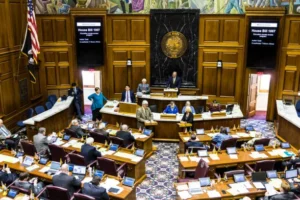For the first time since widespread protests toppled their leader during the 2022 economic crisis, Sri Lankans held a presidential election. This Sri Lankan presidential election presents a crucial opportunity to evaluate the country’s efforts to strengthen its economy. Even after the government implemented measures to stabilize the economy, some citizens still face financial hardships due to increased taxes and reduced social support.
The election is dominated by economic problems, as voters seek solutions to rising prices and rates of poverty. According to Soumya Bhowmick of the Observer Research Foundation, the election will determine how Sri Lanka’s economy recovers and how the population trusts its leadership again.
President Ranil Wickremesinghe is in the race for reelection. He stepped in to help Sri Lanka through its financial crisis. However, he has come under fire for quelling protesters and defending the controversial Rajapaksa family, both of which he denies.
Marxist contender Anura Kumara Dissanayake is also contesting and has become well-known for his anti-corruption stance. Sajith Premadasa, the head of the opposition, and Namal Rajapaksa, the nephew of the ousted president, are bitter rivals.
Years of low export performance, under-taxation, and poor management led to Sri Lanka’s economic collapse, sparking widespread protests. The outbreak further intensified these concerns. People in Sri Lanka still confront difficulties because of rising costs and a lack of employment, even in the face of efforts to control inflation and bolster the country’s currency.
There’s a chance that the results of this Sri Lankan presidential election will differ from previous elections. For the first time, the winner may not receive an absolute majority, requiring additional counting. In this case, the election will consider votes from secondary and tertiary preferences. This Sri Lankan presidential election holds significant importance, as it will shape the future of Sri Lanka.









